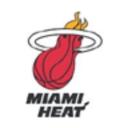Yahoo Answers is shutting down on May 4th, 2021 (Eastern Time) and beginning April 20th, 2021 (Eastern Time) the Yahoo Answers website will be in read-only mode. There will be no changes to other Yahoo properties or services, or your Yahoo account. You can find more information about the Yahoo Answers shutdown and how to download your data on this help page.
Trending News
Why did the Japanese attack Pearl Harbour?
What were the events leading up to the Pacific war and what made the Japanese decide to go for it?
It's something we in Europe are not taught - even though we know about the events of Pearl Harbour and everything that came after.
What made Japan join the war with Germany, and therefore attack the US when neither of you were part of the war yet?
Thanks so far guys. There's some good answers here which put lots of pieces together. Any conspiracy theories?
15 Answers
- Anonymous9 years agoFavorite Answer
Japan was at war with China, the U.S. Government wanted an end to the war, so they started applying economic sanctions on the Japanese. Japan is pretty poor when it comes to natural resources, so they were really feeling the pinch. They decided to attack British and Dutch possessions in SE Asia that were rich in resources, but they knew America would be a threat to their plans, so they decided to attack Pearl Harbor in an effort to knock the U.S. Pacific Fleet out of the war for 6 months to a year, which would give them free rein to capture what they needed and then prepare to defend against the Americans.
- Anonymous9 years ago
There are many interpretations for this, but if you look at the WWII archives you can see that in fact the USA saw Japan as a major threat compare to Germany. They decided to cut off all oil supply to Japan, by blockading and taking over the supply in the Philippines. During the 20th Century, some countries saw the blockade of resources was an act of war, and therefore Japan retaliated with Pearl Harbour.
One thing which is important to note, is that Japan was more superior in the seas. Taking out Pearl Harbour would give Japan 'the seas' in the Pacific.
Source(s): (I Learnt This At University in the UK - I was never taught it until then!) Take a look at the WWII archives, or if your really interested- the Imperial War Museum in London - 9 years ago
Since US had territories all around Pacific Ocean (Midway, Hawaii, Guam, Philippine, Samoa, and other different islands) US was always anxious when Japan made a sudden move.
When Japan attacked Korea, US President, Theodore Roosevelt had a secret meeting with Japanese that US will recognize Korea as Japanese territory if Japan recognize Philippine as US territory.
When Japan attacked Manchuria (China), US condemned and scold Japan for being greedy, but did not really did anything in the fear that Japan might retaliate.
When Japan attacked US oil tanker in the Yellow River (international river), US's negative feeling toward Japan grew and started to see Japan was a threat.
By this time, Japanese thought US will give Japan sooner or later. Since US had powerful military that rivaled theirs, Japanese resorted to making a surprise attack. President Franklin D. Roosevelt expected the attack would be at Philippine or another island closer to Japan. When Japanese attacked Hawaii, a formal US state thousands of miles away from Japan, no one was prepared and US suffered a heavy loss.
- John de WittLv 79 years ago
Going back to the Boxer Rebellion, Japan, the US, and the European powers gained concessions in China. Japan, as one of the Allies of WW I, got Germany's concession after the Great War. Then they pushed to add more (plus Manchuria). When you read of the "Rape of Nanking," keep in mind that city was at the time the Chinese capitol. This ran counter to US interests, and there was considerable friction. You might want to read on the bombing of the Panay, for instance. The US responded with increasing economic sanctions, finally an oil embargo imposed in August 1941. Japan got about 80% of its oil from the US, and would simply run out by February or March 1942 if they did nothing.
The Dutch government at the time was, of course, in London, and Germany occupied a large part of Europe. Britain's Royal Navy had plenty to do elsewhere, so it seemed the Japanese had only the US Navy to stop them grabbing the Shell Oil fields in the Dutch East Indies. And they did have to worry: Operation Orange, a US plan to sail against Japan's Imperial Japanese Navy in such a circumstance, had been leaked and printed by the Chicago Tribune.
The Japanese plan was to take out the US Navy's Pacific fleet as a spoiling attack, so they could take those oil fields unmolested. With their history against the Russian fleet at Port Arthur in 1904 they had reason to think they might be successful.
- How do you think about the answers? You can sign in to vote the answer.
- Louie OLv 79 years ago
The Japanese wanted to conquer Southeast Asia, Indonesia, and the Pacific Islands but they were concerned the American Navy would come to their aid when attacked. So the Japanese attacked Pearl Harbor with the intent of crippling the U.S. Navy. They thought it would take at least one year for the American Navy to recover from the attack and by then it would be too late, they would have control and built defenses in those territories and America wouldn't be able to take them back.
additional detail:
Germany and Japan had a common enemy, Russia. Also, in protest to the Japanese invasion of China in 1937, the U.S. placed an oil embargo on Japan. Many people claim the U.S. provoked Japan into war because of the oil embargo, not knowing it was done to protest the Japanese invasion of China. After the oil embargo was placed on Japan they decided to attack Indonesia for their oil.
- knight1192aLv 79 years ago
Neither war part of the war yet? That's funny. The war in the Pacific started before the war in Europe but the US didn't offically enter the war until December 7, 1941. Ironically the US was unoffically involved in the war in Europe before it offically entered the war taking part on the side of the Allies in the Battle of the Atlantic. In fact the first US casualties came in October '41 with the attack on USS Kearny on October 17, 1941 as the destroyer was escorting Convoy SC 48. Convoy SC 48 also resulted in the sinking of the corvette HMS Gladiolus and the destroyer HMS Broadwater. Two weeks later the destroyer USS Reuben James became the first US warship sunk in the war as she escorted Convoy HX 156.
As for the Japanese attack on Pearl, the short answer was to knock out the US Navy in a single stroke forcing the US to sue for peace. The long answer begins in the 1850s with Commodore Perry forcing the Japanese at gun point to open their ports to froeign trade, particulary trade with the US. You can go from there to the Battle of Shimonoseki Straits in 1863 in which USS Wyoming, while hunting the CSS Alabama in the Pacific, was brought in to engage the Choshu clan (the overall Battles of Shimonoseki lasted from 1863 to 1864 and included the UK, the Netherlands, France, and the US). Then look at the Spanish-American War which cleanly establishes the US as a presence in the Pacific with the US gaining the Philippines and Guam from Spain and the Russo-Japanese War which sees Japan emerge as a major power in the world with the ability to provide influence over the Philippines and Guam. This leads to one of the goals of the Great White Fleet. One of Roosevelt's goals with the Great White Fleet was to subtly send a message to Japan that the US Navy could quickly deploy it's forces to the Pacific to defend US territory there if Japan tried to take it. From there you can go to the Washington Naval Treaty of 1922 in which Japan expected to be treated as an equal of the US, the UK, or both in terms of naval size but was instead limited to a smaller navy than the US and UK which were treated as equals in that naval limitation treaty. The Mukden (Manchurian) Incident resulted in the US issueing the Stimson Doctirine which stated the US would not recgonize any government Japan installed in Manchuria while at the same time the League of Nations issued the Lytton Report which basically did the same thing and went further by saying that Manchukuo had been established through Japanese aggression. In '37 you have both the USS Panay Incident and the Rape of Nanking (Nanking Massacre) which strongly turns US public opinion against Japan and results in the US joining the UK and France in offering loan assistance to Japan's enemy, the Republic of China. 1940 sees Japan invade French Inochina which results in the US halting the export of planes, airplane parts, machine tools, and aviation fuel to Japan but the US stopped at putting an embargo on oil exports to Japan. Keep in mind this is 1940 here, France hasn't yet fallen to Germany when the 1940 embargo was put into place. Following the fall of France Japan further expanded into French Indochina leading to the US instituting the oil embargo in July 1941, by which time Japan is already planning for the Pearl Harbor attack. Yamamoto's plan began early in '41 so the oil embargo pretty much assured it would happen.
- 9 years ago
Once the US found out what the Japanese were doing in the Pacific, they decided to stop selling war supplies to them like Oil, steel, etc. The Japanese took this as a sign of war and decided to try and cripple the US Navy by attacking a port that they beleived to hold most of its ships. They were then planning on moving towards the US mainland once the Imperial Navy had taken Hawaii. The attack on Pearl Harbour was not very successful, by the fact that a lot of the ships were out-of-port on a some sort of mission, and the planes were only able to sink a couple battleships. The Japanese also lost a lot of airplanes and gained a very powerful enemy.
- ?Lv 49 years ago
The Japanese forbid all Westerners to come to Japan for hundreds of years. When Cmmdr. Perry showed up in 1852, Japan was thrown into turmoil. Suddenly they realized the bushido's martial arts were of limited effectiveness against firearms. So they built a war machine which took over.
- ?Lv 45 years ago
In very simple terms: 1. Pearl Harbor was not a battle. 2. Germany would hardly send U-boats or any other ordnance to help the USA since Germany and Japan were allies.
- History_BuffLv 79 years ago
The US tariff trade with Japan and Japan was mad. They also wanted to weaken the US Navy so they attacked them at the heart: Pearl Harbor.






